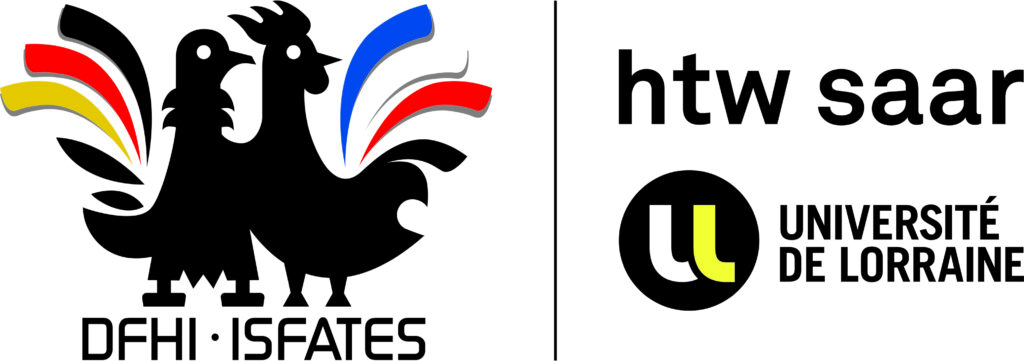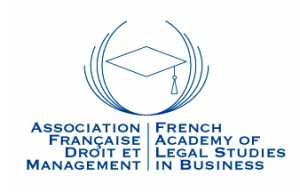Conference in Celebration of the 10th Anniversary
of the French Academy of Legal Studies in Business (AFD&M)
December 14 and 15, 2023
Maison de la Région Grand Est – Sarre
270 Bd Saint-Germain, 75007 Paris
CALL FOR PAPERS IN RESEARCH AND PEDAGOGY
Legal Transformations of the Firm in a Time of Environmental and Societal Challenges
The global upheavals with which populations are confronted daily and will be even more so in the years and decades to come, are plunging societies and civilizations into a level of uncertainty never experienced on a planetary scale.
They take first and foremost the form of crises of all kinds, in all regions of the world, starting with the climate crisis, which the successive COPs are having the greatest difficulty in apprehending, and therefore in managing. We will also mention pandemics, inflation, as well as wars, whether real or cybernetic, and their human, economic and political consequences. They contribute to and increase the feeling of destabilization in society. International institutions, whose traditional role is to control geopolitical risk, and thus to reassure States, their populations, and their companies, by creating confidence, are equally facing these upheavals. This is the case for the UN, whose legitimacy has been weakened by the ongoing Russian-Ukrainian conflict, as well as by the so-called climate crisis. It is only at the end of 2021 that a draft resolution was submitted to the vote of its Security Council[1] with a view to establishing a generic link between global warming and security in the world, and to integrate climate-related security risks into global conflict prevention strategies, which Russia vetoed.[2] States and companies are not left out of this crisis of confidence, especially when the former are on an equal footing with the latter, such as GAFAM or Pfizer.
Other global upheavals do not necessarily manifest themselves in a pathological way but produce disruptive changes that can significantly impact international and national institutions, populations, and private organizations, including companies. We are obviously thinking of the most advanced technologies, first and foremost artificial intelligence, but also blockchains in financial matters (digital assets), on which NFTs have evolved, among others. Some of these disruptions are likely to cause problems, particularly for society, and to offer solutions to the crises presented in broad strokes above.
Whatever the envisaged scenario – from the one predicting a slowdown, a decline, and a retreat of the State, to the one of a technological acceleration in support of a maintained globalized growth, or the one involving a profound ecological mutation from which new models of production and consumption would emerge – the transformation has begun and is gaining speed. In an uncertain world order, the challenges are such that they call for initiatives of all origins: institutional, individual, and entrepreneurial.
The law is no exception. Its transformation is underway, whether in terms of the situations it intends to regulate, the content of legal rules, or its normativity. Among the former, one obviously thinks of corporate governance, the ESG taxonomy, or the duty of care that environmental lawsuits seek to extend. We also think of well-established legal concepts that are or will necessarily be challenged, such as insurance or the public law – private law divide. As for the second, regulation, in the narrow sense of the term, and the strong requirements of compliance that it entails, occupies a growing place alongside the normativity that could be said to be classical, consisting of bringing the law into the real-world ex-post, that is, once the violation of the rule has been committed.
Companies are also required to react. Today, they aim to become sustainable, digital, global, flexible, inclusive, and they still need to avoid potential sanctions imposed by States, to know how to exploit technological tools in an ethical way, and to integrate equitable economic models. Because the normative environment that they must understand is changing, new risks are appearing or looming, notably the so-called transition risk, which is the risk generated by the proliferation of new laws aimed at reducing our impact on the climate and adapting to its effects.
The role of lawyers – those of all the legal professions, including in-house lawyers – are changing accordingly, rapidly. The resources they create are being rethought, thus reexamining the company’s legal performance.
Finally, the changes described above call for a revamping of training programs, including those at the undergraduate, graduate, and post-graduate levels. Business schools are attempting to significantly impact their societal environment, which is expressed in the strategic orientations they adopt, but also results in changes in curricula, content, and teaching methods. What are the existing or yet-to-be-invented programs that are appropriate for understanding the legal transformations of organizations? How can we teach a course that pertinently integrates the social concerns of companies and beyond that the issues raised by CSR? Which teaching methods seem to be the most appropriate?
Therefore, a call for papers on the themes related to the legal transformation of the firm in a time of environmental and societal challenges is in order.
The Organizing Committee of the 10th Anniversary Conference of the French Academy of Legal Studies in Business (AFD&M) invites you to examine the issues and manifestations of this change, which is likely to upset traditional balances and operating methods within companies.
This general theme invites contributions in research and teaching, theoretical and/or practical in nature, on topics in law, management sciences, economics, or cross-disciplinary contributions.
[1] Submitted by Niger and Ireland.
[2] The draft was supported by a majority of UN members, as well as by 12 of the 15 members of the Security Council. India voted against; China abstained. In France, it was not until 2022 that the government defined a strategy to prepare national defense for the challenges of climate change (Ministry of the Armed Forces, Defense & Climate Strategy, Apr. 2022).
A call for contributions in research and practice in law, management, and law & management, whether they are completed, in the revision phase, or even being written.
The objective is to create a convivial moment of exchange so that members from different backgrounds can share their thoughts, their concerns and allow them to benefit from feedback that can improve the development of an article or a chapter of a book. The presentations that will be made will also allow participants to exchange and share information on the state of research in each field.
- The role of insurance in companies disrupted by crises
- The impact of climate change on corporate governance
- The renewal of public-private partnerships
- The transformation of legal professions by AI
- The transformation of labor relations
- The duty of care
- Say on climate: a cross-section of the law on the company and the company on the norm
- The impact of climate change on the concepts of corporate law
- The legal approach to the circular economy
- Transition risk management
- The transformation of legal markets
- The renewal of the legal function in companies
- The Legal Ops function in legal departments – What role in optimizing organizational efficiency and in aligning with the company’s economic and societal challenges?
- The role of LBBD (« Legal, Business, Behavior, Digital”) skills in aligning the legal function with the company’s strategy.
- Climate lawsuits against companies
- Rethinking the management of major risks through insurance
- The future of reinsurance and captive reinsurance
- The impact of inflation on the legal management of the company
- Law and the algorithmic society
- The transformation of the employment market
- Public law in a world of conflict
- What opportunities exist for SMEs in the context of market platformization?
- Sustainable finance: what role exists for law in business projects?
- The protection of personal data in the connected world
- How to transmit an appropriate ethic in the face of the mass exploitation of technological tools?
- How to structure sustainable and long-term solutions, beyond crises (e.g., teleworking vs. feeling of belonging to a company)
A call for contributions in teaching
In response to the economic, political, health and, more generally, social crisis, it is important to discuss the impact of the above-mentioned phenomena on teaching, particularly, but not exclusively, in business schools. The discussion focuses on the integration into the teaching programs of learning methods or themes related to the major societal issues of our time, which leads to the following questions:
- Have sustainable development concerns disrupted or turned teaching on its head?
- How can technological solutions be transformed into a teaching tool: the example of ChatGPT
- What is the role of teachers and trainers in a complex crisis context?
- How can sustainable and long-term solutions be structured, beyond crises (for example: the role of post-pandemic distance learning)
- What teaching should be provided to students in the World of Tomorrow? How should this be done?
- How can business schools adapt courses that may not be totally in line with the requirements of sustainable development and the eco-numerical transition? What are the prospects for future « sustainable » business schools by 2030-50?
- How can we make students aware of the importance of major environmental and social challenges?
- What teaching methods can be used to ensure that the best is not the enemy of the good?
It is in the vocation of the French Academy of Legal Studies in Business (AFD&M) to maintain ties between its members. The 10th Anniversary of the Academy is a great opportunity for a scientific exchange around research and teaching, but also a convivial moment over a day and a half, whose configuration will depend on the contributions received.
Schedule
Abstracts : EXTENDED TO JULY 31, 2023
Final full-text papers: October 10, 2023. // SUBMISSION OF PAPERS WITHOUT PREVIOUSLY SUBMITTED INTENTION IS AUTHORIZED. / PAPERS ALREADY PRESENTED AT A CONFERENCE ARE AUTHORIZED.
Submission Standards
The intentions of communication must be submitted in the form of an abstract (4000 characters maximum with keywords) accompanied by the issue addressed and the main methodological tools mobilized, in French or English. The full text of the papers must respect the following submission format:
The first page will contain the name and position of the author(s), and the title of the paper. The second page will contain only the title of the paper, an abstract in French and English and 4 to 5 key words.
The text should be written in the form of a text file, Times New Roman 12 font, A4 format, 2.5 cm margins, single line spacing, and should not exceed 25 pages, to be sent by email to secretariat-general@afdm-droit.com.
Publication opportunity
The Revue Interdisciplinaire Droit et Organisations (RIDO) is launching a call for papers on the theme: « Major global challenges and organizations ». The works presented at the 10th Anniversary Conference of the French Academy of Legal Studies in Business may be considered by the journal, within the said call for papers. Articles submitted to RIDO must strictly comply with the note to authors available on the journal’s website: https://www.revue-rido.com.
Comités
Website
https://www.afdm-droit.com/congres-des-10-ans-de-lassociation-francaise-droit-et-management-2/.


